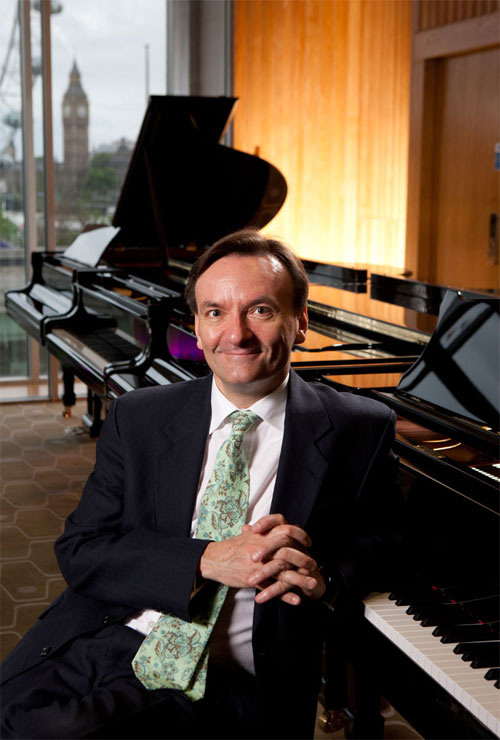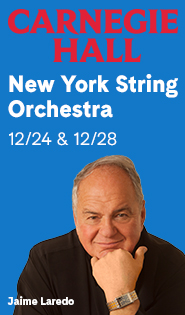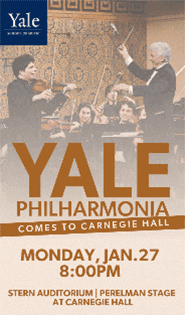Hough’s shifts between thoughtful and frantic make for mixed results

Stephen Hough performed a recital Tuesday night at Carnegie Hall
Pianist Stephen Hough’s Tuesday night recital at Carnegie Hall was a fascinating and exasperating study in how musicians listen.
The way they do while performing is a unique, complex feedback loop, a real-time self-evaluation and a discussion between preparation and spontaneity. Across programmed music from Debussy, Schumann, and Beethoven (and encores from Schumann and Chopin), Hough seemed to both agreed and disagree with himself, and at times the composers.
He played the two books of Debussy’s Images, Book II first then Book I after intermission (he has a new CD out on Hyperion of selected Debussy piano pieces), preceded by “Clair de lune” to start the concert and “La terrasse des audiences du clair de lune,” (from the Préludes) to open the second half.
This music immediately set the tone of the concert, which had nothing clearly to do with the moon (or the rare Super Blue Blood Moon) or lunacy in general. Instead, the tone was in Hough’s playing, which swiveled back and forth between brilliant and puzzling. That was “Clair de lune,” from bar to bar.
The most brilliant part of Hough’s playing, and what was consistent all night, was the luscious comfort of his sound on the instrument. With a combination of a slightly light touch and expert pedaling, he produced an unusual sonic warmth.
Also striking was the natural simplicity of his phrasing.
The puzzling part was how he appeared to listen to that and respond with what seemed a self-regarding manner, as if he were both impressed with and congratulating himself. Each line became more heavily mannered as it went along and descended, a Jekyll and Hyde approach within each phrase.
In his best moments he held one idea all the way through a line or a section, expressed through sparkling technique. In the first half, sandwiched between “Cloches á travers les feuilles” and “Poissons d’or,” both hampered by the inconsistent approach, was an “Et la lune descend sur le temple qui fut” in which each step had a clear purpose and logical direction toward each further step. One could hear Hough inside the music, anticipating how it would come together and sticking to his, and Debussy’s, plan.
What made all this fascinating was that it was a display of how musical thinking can work, or fail constructively. Even if the results were problematic or frustrating, Hough was trying to get at some understanding of the music and himself, the kind of thing one follows with more interest than just a predictable run of the same notes one has heard dozens of times.
The Debussy on the second half was a near-mirror image to that on the first. “La terrasse” was sonically gorgeous, began with an ego-less commitment, and devolved into manner. Of the Book I Images, “Reflets dans l’eau” and “Hommage a Rameau” again had an uneven tone, while “Mouvement” was superb. In that, Hough’s playing was all about the fluid scurrying and shining sound of the notes, impressions of light and color.
Before intermission, Hough played Schumann’s Op. 17 Fantasy, and that performance worked and sounded natural all the way through. The internal inconsistencies that are part of Schumann’s genius, the way a line might end in an unexpected place or after an unusual duration, the way Schumann’s music often argues with itself, came through with a strong and unfussy personal connection.
No matter how much time spent practicing—Hough played from memory—the score led him on to new experiences, and Hough followed avidly, without doubts or second-guesses. His thinking led to a completely intuitive experience.
The final work was Beethoven’s “Appassionata” Sonata in F minor, Op. 57. Hough was full of fire, but it was just as often misdirected and damaging as it was illuminating. The dramatic, portentous minor key movement in the first movement was powerfully realized, but when the piece modulated to major Hough seemed to be trying out different ideas without following through on any one in particular; nothing made complete sense.
This unevenness damaged the realization of Beethoven’s structure. There was no tension at all in the preparation of the dramatic coda that ends the first movement, and in the overall finale Hough worked himself up into such a frenzy that he completely lost track of the pulse. The music should run, but instead it tripped and waved its arms wildly to maintain balance. At times this literally happened, with Hough pushing forward so passionately that his fingers failed him.
As it so often is, the two encores restored balance. Playing Variation 5 of Schumann’s Symphonic Etudes and Chopin’s Op. 9, No. 2 Nocturne, one enjoyed Hough at his simple, naturalistic best.
Mitsuko Uchida plays two different programs of Schubert sonatas 8 p.m. February 26 and March 2. carnegiehall.org


Posted Feb 01, 2018 at 12:52 pm by Cynthia Dantzic
Your review mirrored my own response. A brilliant pianist is allowed some human idiosyncrasies however, and that adds to the experience for me.